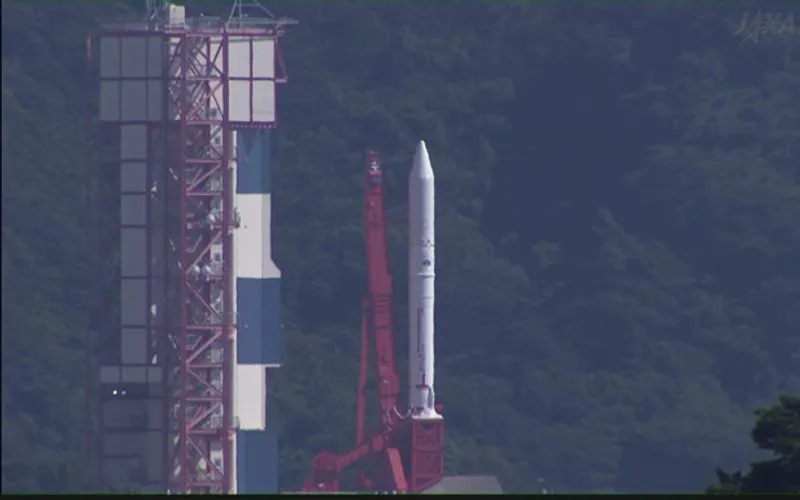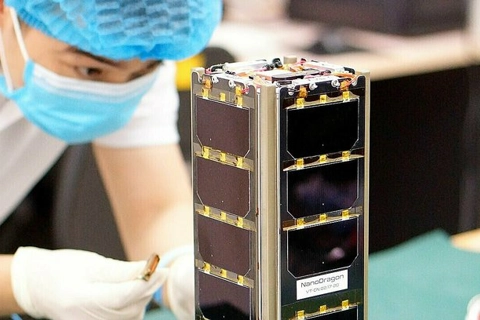Launch of Vietnam sea observation satellite suspended due to ground radar issue
The sea observation satellite would have been Vietnam’s third satellite to go into space if the launch had gone smoothly.
The launch of the made-in-Vietnam sea observation satellite, NanoDragon, has been put on hold due to a ground radar issue.
The Japan Aerospace Exploration Agency (JAXA) had to cancel the launch of its Epsilon 5 rocket, expected to carry Vietnam’s NanoDragon satellite and eight others into orbit some 19 seconds before the scheduled liftoff time.
JAXA said a glitch occurred at ground radar equipment that monitors the Epsilon-5's position and speed, located near the rocket's launching pad, adding that it might cause a problem in tracking the Epsilon-5.
The agency immediately called off the launch from its Uchinoura Space Center in the town of Kimotsuki, Kagoshima Prefecture, southwestern Japan, after it had started counting down to the liftoff time of 9:51 am on October 1 (local time).
JAXA suspends the launch of its fifth Epsilon rocket carrying nine satellites, including Vietnam's NanoDragon, some 19 seconds before the scheduled lift-off. Screenshot: JAXA |
There were no problems with the Epsilon-5 itself or the nine small satellites of universities and private companies that the rocket is carrying, the agency noted. However, a new launch date has yet to be decided.
“Tens of thousands of Vietnamese and Japanese space science enthusiasts watched the live broadcast from the JAXA on many platforms. About one minute before launch, the JAXA decided to halt it to check the system and ultimately called it off. The JAXA will announce the next launch schedule later,” Dr. Pham Anh Tuan, general director of the Vietnam National Space Centre (VNSC) under the Vietnam Academy of Science and Technology, told The Hanoi Times.
The NanoDragon, a nano-layer cubesat satellite that weighs 3,8 kilograms, was developed by the VNSC. A ground station to operate the satellite after launch was already built at the VNSC headquarters at Hoa Lac Hi-Tech Park in Hanoi.
The satellite was delivered to Japan and tested at the Uchinoura Space Centre in Kagoshima prefecture in August before being officially transferred to the JAXA for launching under the second "Innovative satellite technology demonstration" program.
NanoDragon would have been Vietnam’s third satellite to go into space if the launch had gone smoothly. It is expected to operate in a solar synchronous orbit at an altitude of about 560 kilometers from the earth.
All stages of the project, from researching to testing the satellite’s functions, were completely carried out in Vietnam by VNSC researchers.
Having passed all quality tests in Japan, it is an outcome of a project to create a nano-scale satellite under the national space technology program during the 2016-20 period.
Before NanoDragon, the VNSC successfully built and sent to outer space two other satellites, including one-kilogram PicoDragon in August 2013 and 50-kilogram MicroDragon in January 2019.












